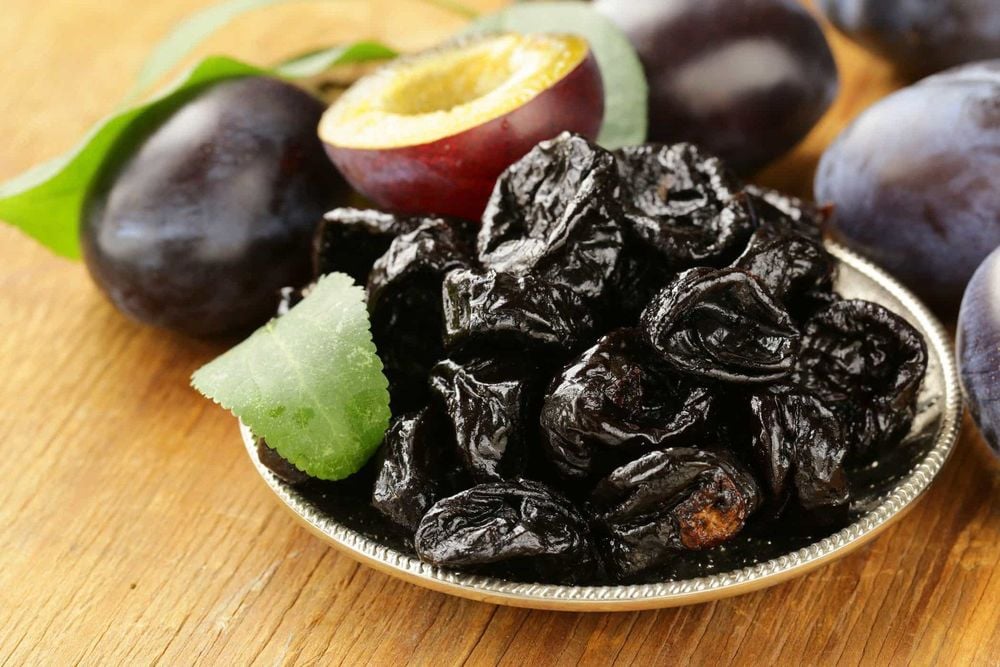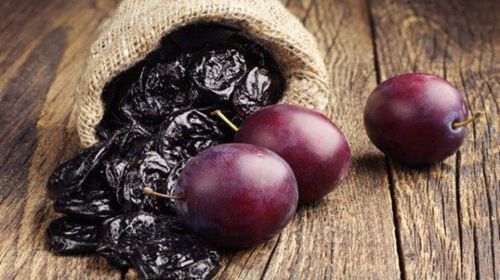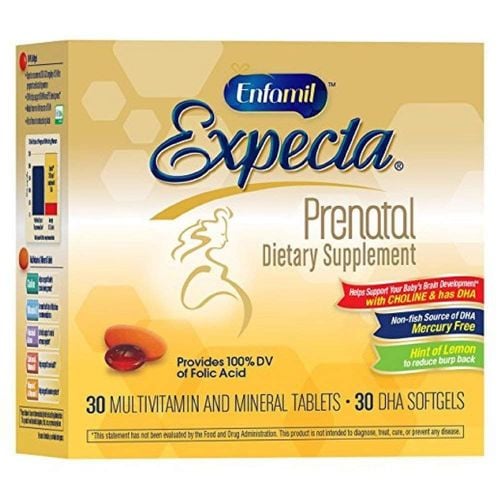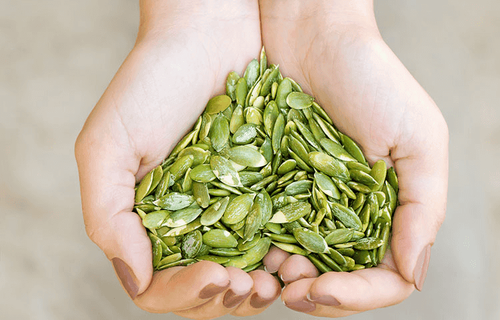This is an automatically translated article.
Plums are extremely nutritious food, bringing a lot of health benefits. They are packed with vitamins and minerals, in addition to fiber and antioxidants that may help reduce the risk of several chronic diseases. Prunes, or prune juice, are known for improving a number of health conditions, including constipation and osteoporosis. This article lists the evidence-based health and nutritional benefits of prunes and prune juice.1. Top Health Benefits of Prunes and Dried Plum Juice
Making sure your body stays hydrated is a great way to protect your organs, and it's also one of the secrets to healthy skin. Nutritionists recommend that each person should add at least 1.2 to 2 liters of water per day, depending on age as well as individual needs and circumstances. For those who have little interest in drinking water because they consider it bland, one way to add flavor and nutrients to making drinking water more enjoyable is with fruit juices, for example. like prune juice into his diet.Prune juice can be made from dried plums, or fresh plums depending on personal preference, containing many nutrients that can contribute to health promotion. Prunes are a great source of energy without causing a rapid spike in blood sugar. Prunes are also high in sugar, so they can be dried without fermentation. They are also rich in fiber, which can help regulate bowel and bladder function.
2. 7 health benefits of plums
As mentioned above, plums are one of the most nutritious foods with many health benefits. They are packed with vitamins and minerals as well as high in fiber and antioxidants that may help reduce the risk of several chronic diseases.You can eat plums fresh or dried. Prunes, or dried plums, are known for improving a number of health conditions, including constipation and osteoporosis. Here are 7 scientifically proven health benefits of prunes as well as prune juice.
2.1. High Nutrient Content Plums and prunes are impressively high in nutrients. They contain more than 15 different vitamins and minerals, in addition to fiber and antioxidants. Here is an overview of the nutritional content of prunes and prunes.
Fresh plums Plums are relatively low in calories, but packed with important vitamins and minerals. One plum contains the following nutrients:
Calories: 30 Carbs: 8 grams Fiber: 1 gram Sugar: 7 grams Vitamin A: 5% of the daily requirement Vitamin C: 10% of the daily requirement day Vitamin K : 5% of the daily requirement Potassium : 3% of the daily requirement Copper: 2% of the daily requirement Manganese : 2% of the recommended daily need In addition, one plum will provide Provides small amounts of B vitamins , phosphorus and magnesium .
Prunes By weight, prunes are higher in calories than fresh plums. A 28-gram serving of prunes contains the following:
Calories: 67 Carbs: 18 grams Fiber: 2 grams Sugars: 11 grams Vitamin A: 4% of the daily recommended intake Vitamin K: 21% of the recommended DV Vitamin B2: 3% DV Vitamin B3: 3% DV Vitamin B6: 3% DV Potassium: 6% DV Copper: 4% DV Manga: 4% DV Magnesium: 3% DV Phosphorus: 2% DV Overall, vitamin and mineral content per serving Fresh plums and dried plums differ slightly. Dried plums contain more vitamin K than fresh plums and are slightly higher in B vitamins and minerals. In addition, prunes are higher in calories, fiber, and carbs than fresh plums.

Mận khô có hàm lượng calo cao hơn mận tươi
It plays a role in preventing constipation by adding bulk to your stool and can speed up the rate at which waste moves through the digestive tract. In addition, prunes and dried prune juice contain sorbitol, which is a natural laxative chemical.
Eating prunes has been shown to be more effective at treating constipation than many other laxatives, such as psyllium, a type of fiber commonly used to relieve constipation.
In one study, people who consumed about 50 grams of prunes daily for three weeks reported better stool consistency and frequency than the group consuming psyllium. The most important thing to keep in mind is that eating too many prunes at once can lead to unwanted effects, such as diarrhea. To prevent this from happening, it is still best not to eat too many prunes at one time.
If you are using prunes juice, make sure it is 100% juice with no added sugar. Also, limit your servings to 118–237 ml per day.
2.3. Prunes and prunes are rich in antioxidants Plums and prunes are rich in antioxidants, which help reduce inflammation, neutralize, and protect cells from damage by free radicals. They are especially high in antioxidants called polyphenols, which have a positive effect on bone health and may help reduce the risk of heart disease and diabetes. In fact, some studies have shown that plums contain twice as much polyphenol antioxidants as other fruits known for their impressive antioxidant capacity, such as nectarines and berries. dig. Numerous laboratory studies and animal studies have found that the polyphenols in prunes and prunes have powerful anti-inflammatory effects, as well as the ability to prevent damage to cells – one of the causes. often lead to illness. In one test-tube study, the polyphenols in prunes significantly reduced inflammatory markers associated with joint and lung diseases.

Cả mận khô và mận tươi đều giàu chất chống oxy hóa
2.4. Fresh and dried plums can help lower blood sugar Plums have properties that can help control your blood sugar. Despite being fairly high in carbs, fresh prunes and prunes don't seem to significantly raise blood sugar after they're eaten. This is thought to be due to their ability to increase levels of adiponectin, a hormone that plays a role in blood sugar regulation
Also, the fiber in plums may be partly responsible for their impact on blood sugar. Fiber slows down how quickly the body absorbs carbs after a meal, causing blood sugar to rise slowly, rather than spike. Furthermore, the consumption of fruits such as fresh plums and prunes is associated with a reduced risk of type 2 diabetes.
2.5. Prunes may promote bone health Prunes may be beneficial in improving bone health. Several studies have linked the consumption of prunes with a reduced risk of bone-related diseases, which are characterized by low bone density. Not only have prunes been shown to prevent bone loss, they also have the ability to reverse bone loss that has already occurred.
Scientists still don't understand why prunes have such positive effects on bone health. However, their antioxidant content and ability to reduce inflammation are thought to play a role in this. Additionally, research shows that consuming prunes can increase levels of certain hormones that are involved in bone formation.
Prunes also contain several vitamins and minerals that have a protective effect on bones, including vitamin K, phosphorus, magnesium and potassium.
While all of these findings are very encouraging, most of the evidence regarding prunes and bone health is based on results from animal studies and test-tube studies. However, there are also a small number of studies that have been done in humans on the link between prunes and bone health that have shown promising results. Compared to other fruits, prunes seem to be most effective in preventing and reversing bone loss
2.6. Fresh and Dried Plums May Benefit Heart Health Eating fresh plums and prunes regularly may have a protective effect on heart health. They have been studied for their ability to lower blood pressure and blood cholesterol levels, major risk factors for heart disease. In a recent study, subjects who drank prune juice and ate three or six prunes every morning for eight weeks were compared to a group who drank only one cup of water on an empty stomach. Those who consumed prunes and prunes juice had significantly lower levels of blood pressure, total cholesterol, and "bad" LDL cholesterol than the group that drank only water.

Ăn mận khô hay mận tươi cũng giúp bạn cải thiện sức khỏe tim mạch
In general, rats that were fed prunes powder and prune juice seemed to have lower cholesterol levels and significantly increased levels of "good" HDL cholesterol. However, these results cannot be generalized to humans.
The positive effects of prunes and prunes on heart disease risk factors may be due to their high fiber, potassium, and antioxidant content. While the results of these studies are promising, keep in mind that more human studies are needed to support the cardioprotective effects of prunes and prunes.
2.7. Easy to Add to Everyone's Diet Plums and prunes are convenient and easy to incorporate into our diets. You can eat them on their own or enjoy them in smoothies and salads, such as in these recipes:
Spinach, Basil and Plum Salad Prune Salad Prune, Orange, Fennel and Onion Prunes can also be consumed as juice and is often stewed, which is the process of combining plums with water and then simmering.
Plums are an extremely nutritious fruit. Both fresh and dried prunes are excellent sources of vitamins, minerals, fiber, and antioxidants. In addition, they have several characteristics that may reduce the risk of many chronic diseases, such as osteoporosis, cancer, heart disease, and diabetes. What's more, they taste delicious and don't require too much preparation, so they're easy to incorporate into everyone's diet.
Please dial HOTLINE for more information or register for an appointment HERE. Download MyVinmec app to make appointments faster and to manage your bookings easily.
Reference sources: healthline.com, webmd.com












